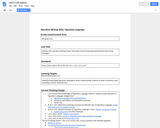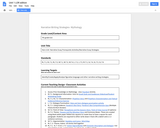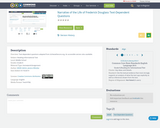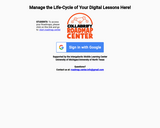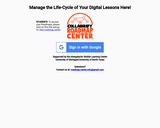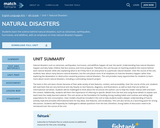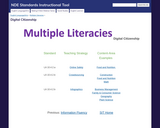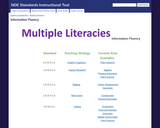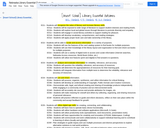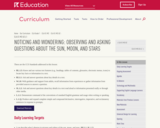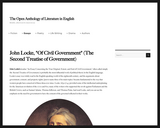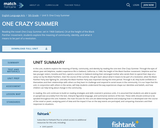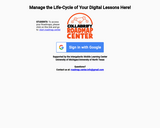In this unit, students build on their foundational understanding of the sun, moon, and stars as they begin to see that there are patterns in the sky that can be observed and predicted. This first lesson is intended to elicit wonder and curiosity, setting the stage for a more in-depth exploration of the scientific concepts to come throughout the remainder of the unit.
As in previous units, in almost all lessons, students hear complex texts read aloud. When possible, display the text while reading aloud. And when doing a first read-aloud of a given text, read fluently, with expression, and without interruption. For additional information, refer to the Module Overview.
In Work Time A, students participate in the Picture Tea Party protocol. Consider how familiar students are with this protocol and reallocate class time spent reviewing it as necessary.
In Work Time C, students revisit the sun time-lapse video embedded in the website PBS Learning Media, focusing on noticing any patterns.
Citation: "Observe Sunrise and Sunset." Video. Teachers Domain. PBS Learning Media, Jan. 2016. Web. 1 June 2016. (For display. Used by permission.)
Purpose: Revisit a previously watched video, focusing on noticing and sharing patterns with a partner. Prompt students to use sentence frames to support building on others' ideas and furthering a conversation, a skill they will practice throughout this unit.
This lesson introduces the use of equity sticks (a stick or card for each student in the class) as a total participation technique for quick response questions. Some other common total participation techniques include cold calling and selecting volunteers.
This lesson is the first in a series of three that include built-out instruction for the use of Goal 3 Conversation Cues. Conversation Cues are questions teachers can ask students to promote productive and equitable conversation (adapted from Michaels, Sarah and O'Connor, Cathy. Talk Science Primer. Cambridge, MA: TERC, 2012. Based on Chapin, S., O'Connor, C., and Anderson, N. [2009]. Classroom Discussions: Using Math Talk to Help Students Learn, Grades K-6. Second Edition. Sausalito, CA: Math Solutions Publications). Goal 3 Conversation Cues encourage students to deepen their thinking. Continue drawing on Goal 1 and 2 Conversation Cues, introduced in Module 1, and add Goal 3 Conversation Cues to more strategically promote productive and equitable conversation. In Module 3, Goal 4 Conversation Cues are introduced. Refer to the Tools page for additional information on Conversation Cues. Consider providing students with a thinking journal or scrap paper. Examples of the Goal 3 Conversation Cues you will see in the next two units are (with expected responses):
To encourage students to provide reasoning or evidence:
"Why do you think that?"
"Because _____."
"What, in the _____ (sentence/text), makes you think so?"
"If you look at _____, it says _____, which means _____."
To challenge students:
"What if _____ (that word were removed/the main character had done something different/we didn't write an introduction)? I'll give you time to think and discuss with a partner."
"If we did that, then _____."
"Can you figure out why _____ (the author used this phrase/we used that strategy/there's an -ly added to that word)? I'll give you time to think and discuss with a partner."
"I think it's because _____."
To encourage students to think about their thinking (metacognition):
"What strategies/habits helped you succeed? I'll give you time to think and discuss with a partner."
"_____ helped me a lot."
"How does our discussion add to your understanding of _____ (previously discussed topic/text/language)? I'll give you time to think and discuss with a partner."
"I used to think that _____, and now I think that _____.
